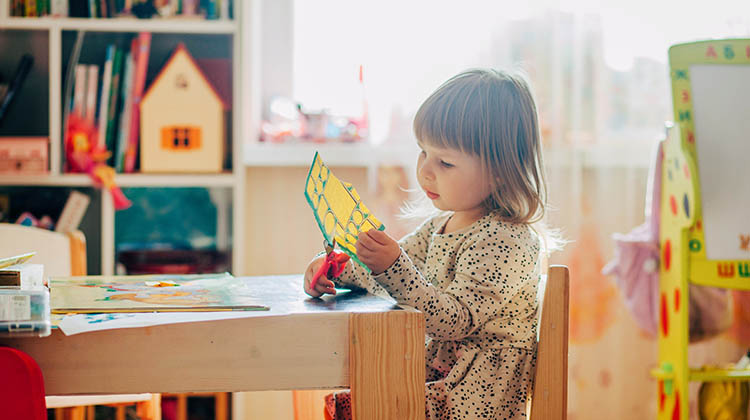Kindergarten Matters: Lifelong Benefits of Early Education

Early childhood education is essential in determining a child's destiny. The foundation for most children's academic, social, and emotional growth is laid in kindergarten, which is their first formal educational experience. Early schooling has been shown to provide long-lasting advantages with favorable effects on children's cognitive development, social skills, and future achievement. Here are a few things you need to know about the importance of kindergarten and its long-term consequences on people, families, and communities.
Academic Excellence and Cognitive Development
Children get a head start on their academic careers in kindergarten. Children acquire crucial cognitive abilities, including problem-solving, critical thinking, and language fluency, through participating in developmentally appropriate activities and play-based learning. Early education trends strongly emphasize developing engaging learning settings that promote experimentation and creativity. Many daycares use cutting-edge teaching techniques to encourage children's intellectual development. This early exposure to education lays the foundation for future academic success and the growth of a lifelong love of learning.
Social and Emotional Skills
Not only does kindergarten foster intellectual growth, but it also helps children develop critical social and emotional skills. Children learn to communicate, collaborate, and settle issues through encounters with classmates and teachers. Early education programs prioritize developing these skills by promoting inclusive classrooms and creating positive connections. Teachers actively seek to establish nurturing situations that enable kids to express their emotions and cultivate empathy because they recognize the value of emotional intelligence in the formative years. These social and emotional skills children learn in kindergarten significantly impact their capacity to build positive relationships and successfully deal with obstacles in life.
Long-term Success and Well-being
The advantages of kindergarten go far beyond the early years. According to research, children participating in high-quality early education programs are more likely to graduate from college, have better employment chances, and have more financial stability as adults. Several research studies have consistently supported these conclusions, demonstrating the link between early education and achievement over the long term. Australia, for example, creates the conditions for a prosperous future, both for its citizens and society as a whole, by investing in high-quality kindergarten programs. By offering excellent early education services that prepare children for a lifetime of achievement, places like an educational daycare in Penrith make a significant contribution to this aim.
Parental Engagement and Community Impact
The kindergarten year serves as a link between communities and families. Including parents in their child's educational experience and giving them resources and support promotes parental engagement. Many kindergartens encourage family participation by maintaining open contact lines, hosting parent-teacher conferences, and organizing group projects. This collaboration between parents and teachers benefits the child's educational experience and the community. Regardless of their circumstances, communities embrace early education and strive to provide all kids equal access to high-quality kindergarten programs.
Closing the Opportunity Gap
The ability of kindergarten to bridge the opportunity gap that exists between children from various socioeconomic origins is one of the essential benefits of kindergarten. Many countries want to level the playing field and guarantee that all children have access to educational resources by offering early education opportunities to all children, regardless of their family's socioeconomic situation. Initiatives to reduce gaps and advance educational equity include free or reduced-cost kindergarten programs and scholarships for low-income households. Some daycares actively assist in closing this gap by providing reasonably priced and excellent early education options. This creates a fairer, more inclusive society by funding kindergarten and prioritizing educational equality.
Building a Solid Foundation for Lifelong Learning
The first grade serves as the foundation for lifelong learning. The abilities and knowledge acquired during these formative years are the basis for future academic endeavors. Kindergartens strongly emphasize inspiring a love of learning and cultivating a growth mindset that motivates kids to experiment, ask questions, and take chances. Teachers build a lifetime love of learning in their students and provide them with the skills they need to adapt to a constantly changing environment by creating a positive and exciting learning environment. The idea that education is a lifelong endeavor is further reinforced by communities, who actively encourage options for continuing education after kindergarten and are aware of the transformative potential of early education. A solid foundation is laid in kindergarten, empowering students to continue their education, take on new challenges, and make valuable contributions to society.
Kindergarten is the cornerstone of a child's educational journey, offering lifelong benefits beyond the early years. The newest trends in early education reflect a commitment to providing children with the best possible start in life. By recognizing the importance of kindergarten and investing in its accessibility and quality, kindergarten ensures a brighter future for its children and society. Through early education, we can empower the next generation to thrive academically, socially, and emotionally, setting them on a path toward lifelong success.
Image by Natalie Bond